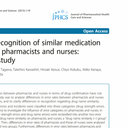Cannabidiol prevents infarction via the non-CB1 cannabinoid receptor mechanism.
Keywords
Abstract
Cannabidiol, a non-psychoactive constituent of cannabis, has been reported as a neuroprotectant. Cannabidiol and Delta(9)-tetrahydrocannabinol, the primary psychoactive constituent of cannabis, significantly decreased the infarct volume at 4 h in the mouse middle cerebral artery occlusion model. The neuroprotective effects of Delta(9)-tetrahydrocannabinol but not cannabidiol were inhibited by SR141716, a cannabinoid CB1 receptor antagonist, and were abolished by warming of the animals to the levels observed in the controls. Delta(9)-Tetrahydrocannabinol significantly decreased the rectal temperature, and the hypothermic effect was inhibited by SR141716. These results surely show that the neuroprotective effect of Delta(9)-tetrahydrocannabinol are via a CB1 receptor and temperature-dependent mechanisms whereas the neuroprotective effects of cannabidiol are independent of CB1 blockade and of hypothermia.


